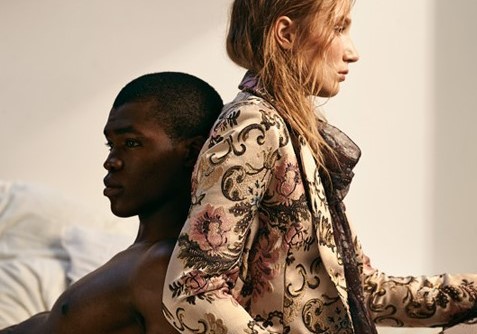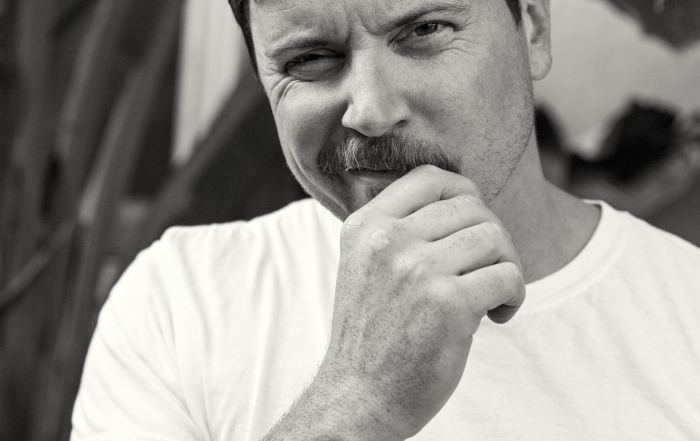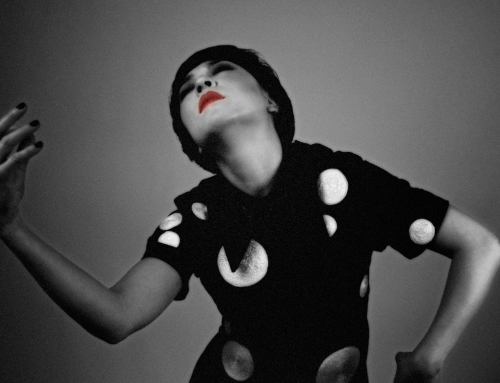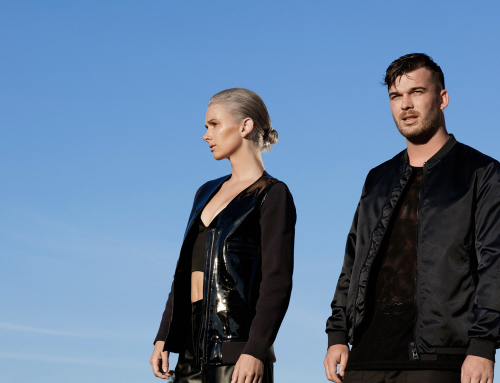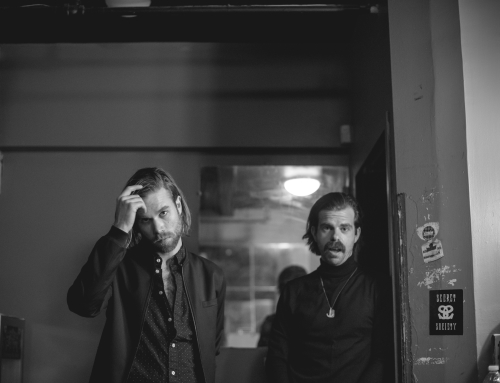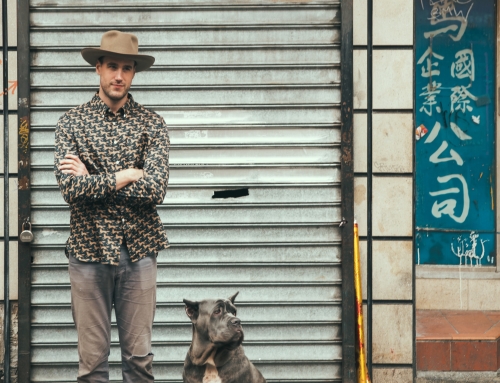Fans of Chvches get rejection of convention. In a genre historically built on constructing alter egos and dreamy utopian perfection, the honesty laid out on tracks by the Scottish indie superstars is welcomed by EDM devotees, particularly the ones looking for more than a surging beat to satiate their listening needs.
“On paper, our band does not make sense in terms of the success we have been able to achieve,” says singer, Lauren Mayberry, of Chvrches’ enigmatic quirks. “We are not a band that should be as big as we are, or be communicating with that many people because we don’t fit into the pop mould necessarily, but we don’t necessarily fit fully into the alternative mould either.”
Their latest album, Every Eye Open, the follow up to the band’s critically acclaimed 2013 debut, The Bones of What You Believe, keeps with the trio’s unique electro stylings, while forging a new approach to their signature brand of synth-pop. Atypical as they are, the evolution of the new record, saw its formation in free wielding deviation.
“We didn’t go in to this record with a theme or a concept in mind,” explains Mayberry. “We wanted to be a bit more focused and refined in certain ways, but it was only after writing for a few months, that we looked at the material we had, and then were able to pull out what we thought the direction of it was going to be…it came out naturally.”
Presenting a fury of dynamic sound and energy through a carefully arranged myriad of synthetic beats, their sophomore album is draped with ethereal vocals that encapsulate the emotionally charged lyrics Mayberry has become synonymous with; the music may pop, but the lyrics boil.
Infused with a more elaborate instrumentation and complex layering than the EP and LP before it, Every Eye Open continues to explore and expand the musical parameters of indie pop’s new generation.
Inside Toronto’s historic Massey Hall, we sat down with Mayberry and bandmates Iain Cook and Martin Doherty to talk about their second studio album, life on tour and how the group has handled the transition from Rolling Stone’s band-to-watch to world-famous music sensation.
So, let’s get started by talking a bit about the new album. It’s getting great reviews. Do you pay much attention to music critics, or do you try to avoid all that and just focus on the music and audiences’ responses when you’re performing?
Iain: It’s hard to completely avoid it, we tend not to seek it out. Sometimes it’s hard; if you’re just looking through your Twitter feed, you see what the fans are saying and stuff and think, “oh, that’s what they think about it!” The thing that matters to us the most, and it probably sounds like a cliché answer…but it really isn’t, is what the fans actually think; it’s what means everything.
Does criticism you receive affect how you write your next song or record your next album?
Lauren: I don’t think you can sit and think about that all the time. If you sit and say, “ok, I need to write an album that everyone is going to love…how am I going to do that?” Then you’re going to over think it. You just have to try and stay true to what you think your band is, and then what will be will be after that.
Now that you’ve been on the road with the new album for a bit, how would you say it’s translating to the live setting?
Iain: It feels good so far actually, yeah. There is a nice kind of mixture of sort of up tempo and down tempo, dark and bright stuff. It’s the best feeling actually to get that injection of life from new material and be able to really properly sculpt the dynamics of the set. It’s improved the live show tenfold, I think.
Martin: There is definitely a pleasure in having to decide your set list every night, rather than going, “ok, we need to play everything we’ve got, again.”
I can see how that might get tiresome! You have a very unique sound. I like it because it plays heavier and more charged than other artists in your genre. Style-wise, what do you personally think separates you from other electro-indie bands?
Martin: It’s a difficult thing to quantify. I think I can only really speak on what we see as the things about our band that connect [with the listener], and that seems to be that they really love the honesty in the music.
Lauren: I think, as Martin said, people can see and hear something genuine in [the music], which is all we ever want. We don’t really know what is going to happen after this, but it is really nice to be where we are, and know that we did it in a way that feels right for us, and that it was all authentic.
It’s what makes you Chvrches, right?
Lauren: When I listen to our records, I can hear all our personalities in them individually. Seeing how that is married together to form the sound of the band is really interesting.
I know it’s probably almost impossible to choose, but between the writing process, recording in studio and performing live, which do you find the most fulfilling?
Iain: You can’t really have one without the other; they are kind of symbiotic.
Martin: They’re very different types of fulfillment. On stage you get immediate gratification; it’s an energy that you don’t experience in everyday life…it is crazy and it is amazing, but the road is a long and tiring place. Whereas, you spend six months making a record, and suddenly you see it connecting with people, and two years later you can sit back and think that you truly achieved something. There is a very different satisfaction in it.
How do songs change from the studio to the stage?
Lauren: I kind of view things as two separate disciplines, almost. It’s about re-interpreting the songs live.
Iain: Usually, in the studio, it’s the moments that make us dance a bit that you know are going to be the ones that are going to translate. But sometimes, you get surprised, you know…sometimes there are those moments that you go, “oh, didn’t see that one coming,” and they lose their shit.
Audiences can surprise you! Last question, when building your sound, were there certain artists that inspired you? Maybe one that is not so evident just from listening to your music?
Martin: There are loads of disguised kind of Easter eggs in our music, based on what we listen to. We listen to all sorts of mad stuff, stuff that you wouldn’t expect because of the type of music that we make…and how those things connect with you and form your tastes and personality, shapes your creativity as you move forward. I mean I don’t want to get specific, in case we get sued [laughing], but it is a huge part of what we do…we love to reference other artists, we love to do it in a kind of subtle way. We are not out to plagiarize [laughing], but we certainly are inspired by what has come before, as everyone is. The best stuff for me, takes what has come before it and puts the personality of the “new” on it.
Iain: Exactly, it’s how you synthesize your influences.
Martin: That is what I am trying to say!












